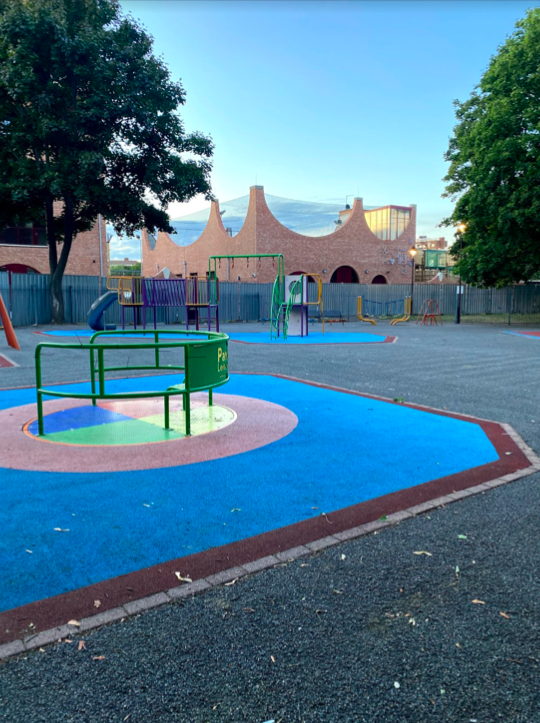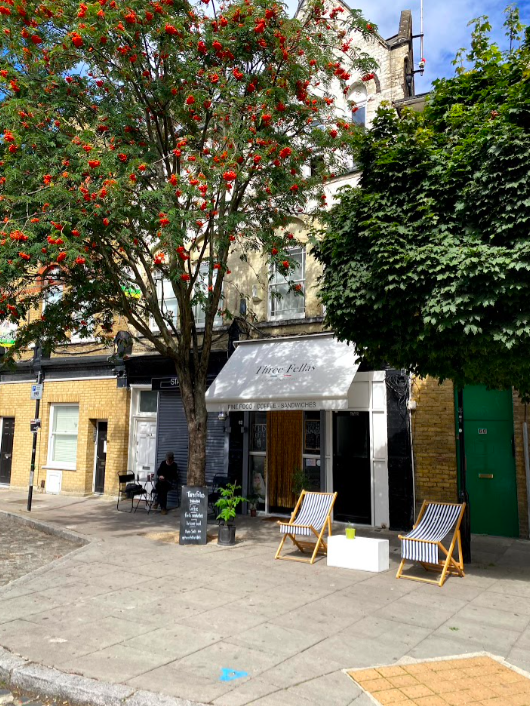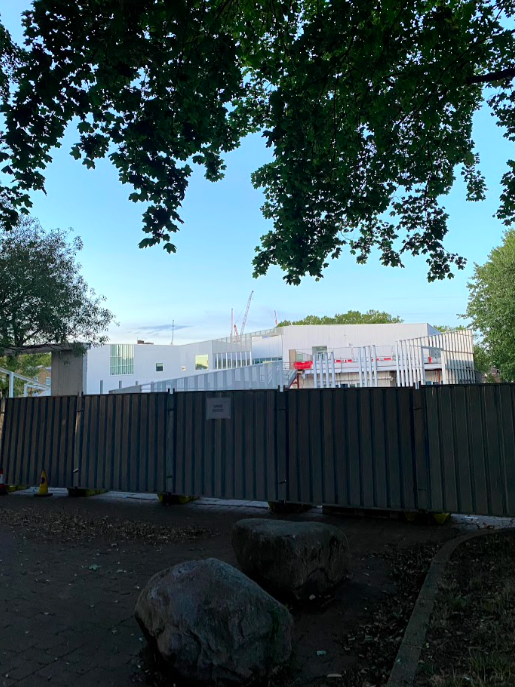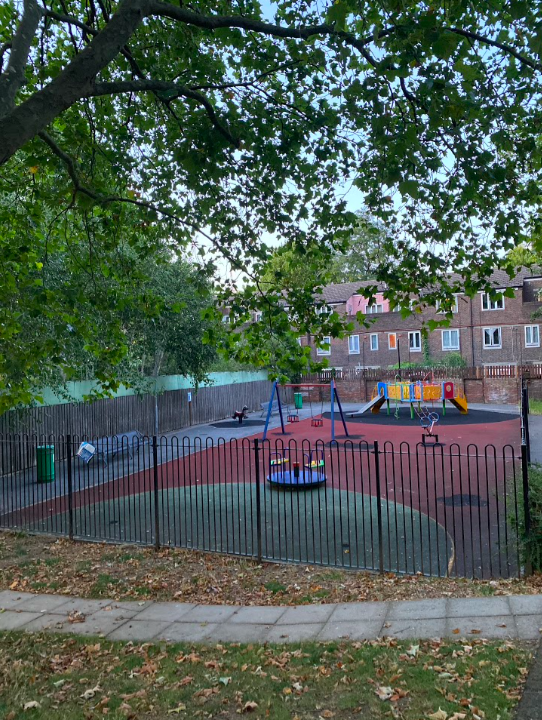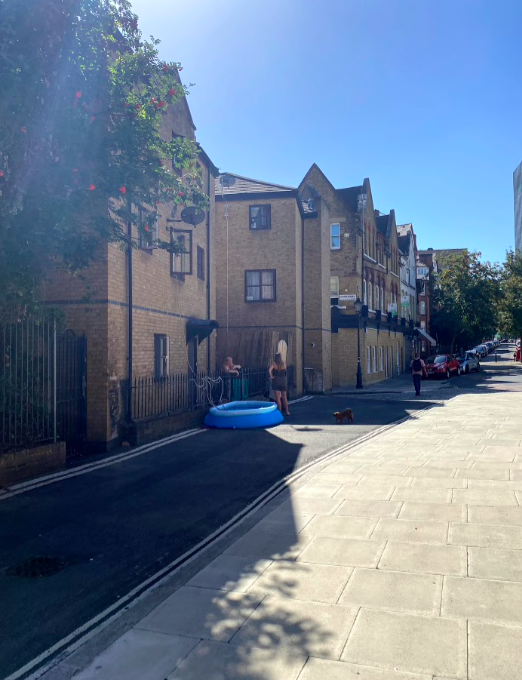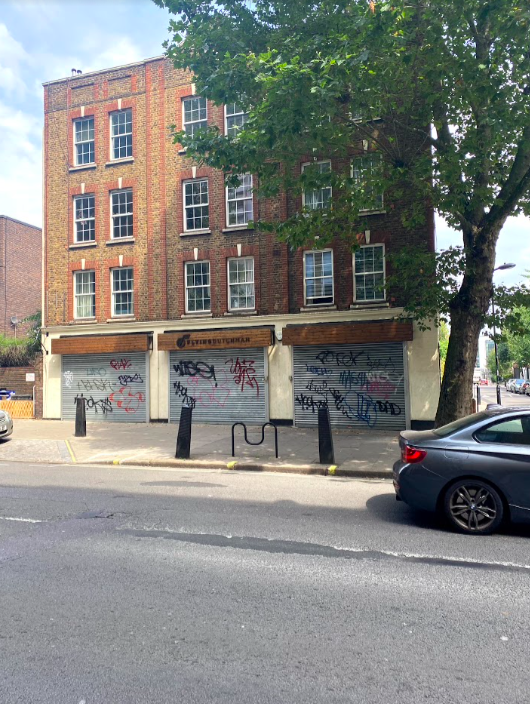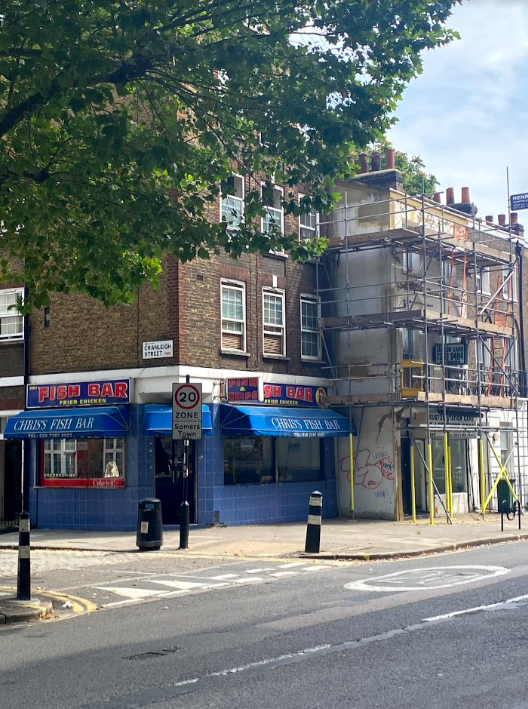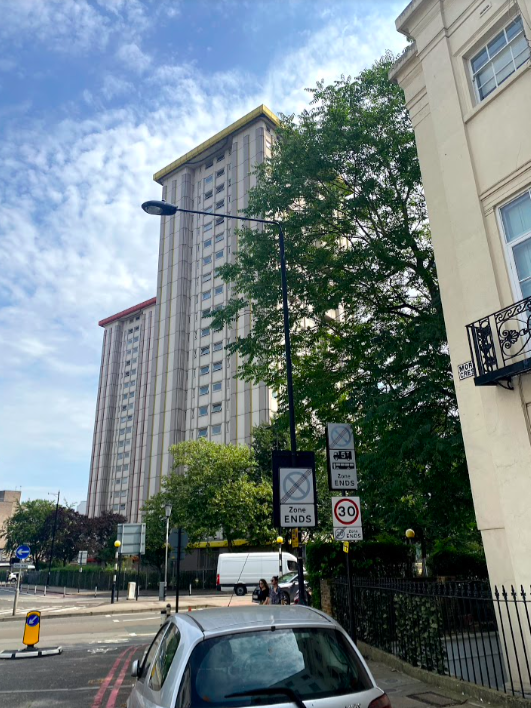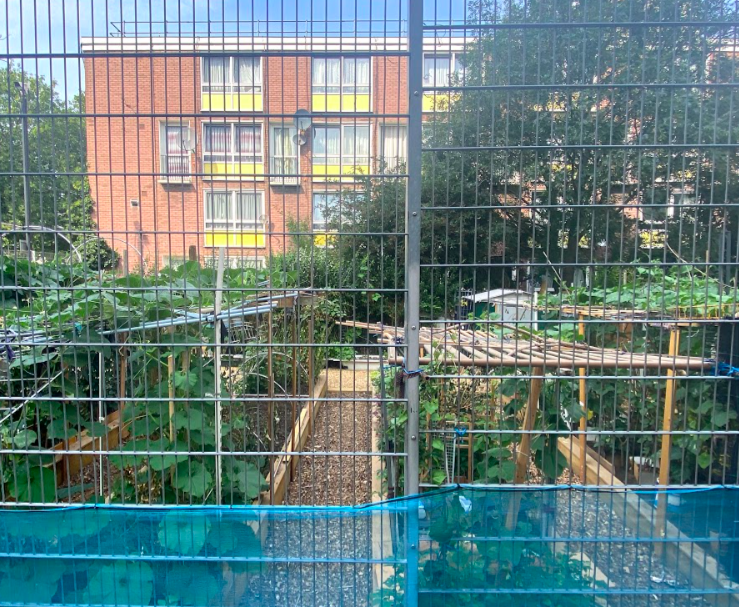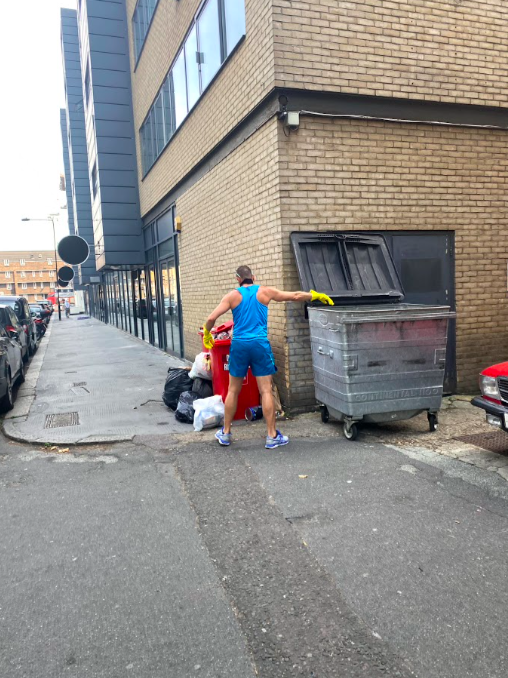5 Minutes with Suraya Miah
We recently sat down (ok, got on a phone call) with Suraya, an inspirational Young Citizen Social Scientist and local Euston Resident.
She shared with us all her wisdom on what young people need and the hardships faced by local communities along with her aspirations for the work done on the Good Life Partnership Project.
Suraya (Left) with Sayra (Right) having just officially graduated as YCSS
How do you define yourself?
In regards to the titles I give myself: a young female (relatively), member of the Bangladeshi community of Camden. An ex young offender, having been through the social justice and criminal justice system. I’m definitely a bi-product of the community. Both positive and negative aspects, I was consumed in a lot of negativity growing up, in regards to youth violence and peer pressure, that’s definitely contributed to who I am today.
Professionally, I am a YCSS, an advocate for young people. I would like to think that I’m courageous and spontaneous. I’ve learnt to say yes to everything even if it seems overwhelming. I’ve seen change within myself, because I was always way quieter. I’m also an optimist, I want to think positively, use the negative things and make them positive.
Having looked at the factors you researched as a YCSS and having grown up in the area: what do you think defines a young person in Camden/ Euston?
Well, ‘young’ connotes age and assume they’re under 25, someone finding their feet – they could be established and all - but for the majority there is that element of being young and courageous. Being young, you need to test the waters, dipping in and out of education, employment, family, etc.
It’s being at the start. A stepping stone before the permanence, searching for yourself. Everyone's young at heart.
“I’m definitely a bi-product of my community”
Why was it important for you to be part of the YCSS?
When I read who was delivering the programme, I saw it as an incredible alliance between powerful organisations. It was amazing to see it was being delivered to young people, I saw it as a chance to ‘get a seat at the table’. The added fact that it was local, and helped us, as a cohort, get links to different parts of Camden.
The accredited learning, and chance to have learnt things none of us would have learnt in any other environment at this age - were also both amazing plusses.
What do the stakeholders need to listen to if nothing else?
The view and opinions of those their work is affecting. I am very fortunate in that I have had a seat at the table. I have seen the repercussions development has had and how it's been projected into the communities, but only a minority handful of us to get that - the ability to speak on it, and more importantly get listened to and heard.
What the role gave was the chance to speak up and those in senior positions. The message I have is: you need to open your doors to those whoever has been affected. You need to be able to to let them tell you how they’ve been affected so that they can make recommendations, informed recommendation, and actions moving forward based on that. Which is what we could do with people like Shaparak, who now has been able to feed that back.
What was the most important aspect of the YCSS and Good Life Euston partnership?
The working alliance between stakeholders and how we were able to actually speak to them. Coming together with young people was a union that was greatly underestimated, and one that we never knew we needed. It’s crazy how I live literally 2 minutes away from the other YCSS, and how I see them now, like actually see them. It goes to show the actual context that was covered in the training, living near development like Euston station and to see it all happen.
I hope to do a postgrad after my undergrad with UCL’s IGP team. I want to carry on. That was the biggest take away; now, not only do I have links to people like James, but I know where to go to get the support and education to carry on.
Looking at the obstacles you may have faced, and what ‘people in power’ can do to accommodate you and people like you: what needs to be put in place to help her and people like her?
A very hard question. Networking is a massive one, the only way I heard about the YCSS opportunity was via networking. Looking to social media and contacts within the local communities. Target audience, the ones you really want to address, are sometimes simply people you cannot get to, having challenges within itself. Identify people in communities who slip through the cracks and speak to them. I wouldn’t know how to do that, it might handle itself.
As a young offender, to get into employment with a criminal record, because of the stigma attached, I consider myself very fortunate to have been give opportunity and position to abolish that. It’s hard to go on to find things. If companies and organisations are more forth-going, accepting and judgement free; that’s needed.
Opportunities, opportunities, opportunities! I always say that. Also, having paid employment is important, and the elevating positions for young people and work their ways up to power and use their voices.
Who puts you to most of a disadvantage?
It’s so weird, it’s instilled In human nature, we’ve almost adapted to it. It’s also internalised within communities. I can see there being change, there are definitely people that are trying to abolish the stigma there. The Council for example does do work with a lot of young people. Cultural influence is also very powerful, I know the threat of family looking down, had things been different. Within communities too, people talk. We can sometimes even put ourselves down as an individual.
If the support isn't there and local community, and religious groups for example, aren't able to support, that can take a toll on you as well
I can’t identify any one individual, everyone has a bias, low-key or high-key. It's just in our nature, everyone does it; but it’s about unpicking that nature and seeing how to overcome it and cannot blame anyone.
Having conducted research, had conversations with community members and in your wider growth: what do you want other young people to know?
It is okay to make mistakes and learn from mistake, in this life and age, some mistake can be so deep that sometimes it's hard to come back – and this isn’t a message or something you want to preach because then they’ll be scared to do anything.
BUT, something for my younger self, just be aware of who you surround yourself with and the communities that you’re in, because peer pressure is real and that’s one thing that I was really affected by and I guess just look out for yourself, no one else is going to do it for you and have your own back
You have a really unique insight, both as a young resident of Camden but also through your role as Young Euston Voice researcher. What would the ideal Euston and world look like for you in 10 years time?
Euston in relation to this program, have HS2 ‘completed’; don’t think it will actually even be done by then, but that’s something, I guess we do tend to focus on the negatives HS2 brought, but it does have scop to reap positivity, so would love to see that transport hub and the link, and having Euston being lively and buzzing with opportunities and people coming in from all these cities, don’t know if I’ll be living here anymore in terms of housing prices rocketing and the failing economy but I’m excited to see how the area is going to change, but hope it doesn’t change too much, still having that Sommers Town bit that still screams Camden, and that the people that currently bring this place to life are still here, like the communities and local businesses are still running, because they definitely shape a lot about what the community’s about, like the churches and the mosques that have services and makes sure they’re regular and are able to provide
The world – hope to abolish racism and global warming that is done for and be... OMG free of COVID19.
Looking back at everything you’ve learnt over the past week, is there anything to add? Any new perspectives that you’ve gained?
Something that I realised, is that I often find myself retracing my steps from years ago, and thinking about how I didn’t know what would come of today; the then future, but, I am content with where I’m at.




